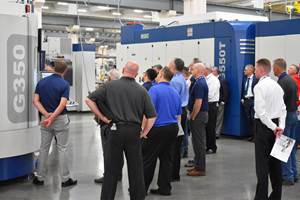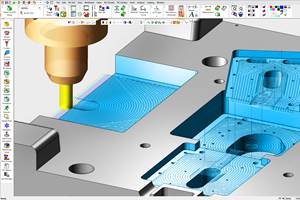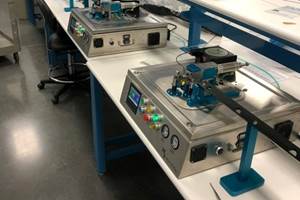Redefining Plastics Manufacturing
When this company was solely an injection molder, job quantities had to be large. Now, with additive manufacturing, any quantity is right. The company's role and its range of customers have both expanded.
Share





Thogus, an injection molder in Avon Lake, Ohio, would have had no business calling on certain medical equipment manufacturers in the past. Now, things have changed.
For example, a company making CT scanners for hospitals and clinics might produce no more than hundreds of these machines per year. Many major components of these machines would be needed in similar small quantities. This is a problem for injection molding, which requires quantities that can justify mold tooling. As a result, Thogus would not have been a candidate for this work even if thermoplastic were the ideal material. The maker of the CT scanner would instead get its small quantity of parts through CNC machining in a metalworking shop.
Recently, however, Thogus expanded its capabilities. Along the way, it redefined the nature of its business. Thogus is still a plastics manufacturer, but today the company makes plastic parts through additive manufacturing in addition to injection molding. Specifically, it makes parts by directly printing them via fused deposition modeling (FDM) on equipment from Stratasys. The minimum viable order size when Thogus was limited to injection molding was tens of thousands of pieces. With additive manufacturing, the minimum viable order size is one piece. As a result of this change, the maker of CT scanners (an example that refers to a real Thogus customer) now has options beyond machining.
Product Development
Matt Hlavin is the president of Thogus. Pronounced “toh-gus,” the company name has a silent h (as does Hlavin’s last name). He says it was about 10 years ago that he started paying serious attention to equipment that builds plastic parts by fusing layers of material. Stratasys’ FDM process was particularly interesting to him, because this company’s machines build parts from materials comparable to those Thogus routinely molds. Thogus’ first FDM machine purchase was in early 2009, in the midst of the recession. Soon after it arrived, the machine let the molder impress a major prospect by delivering not only a proposal for a potential job, but also a ready prototype tool. Winning this job paid for the machine. Within a month, Thogus purchased its second FDM unit.
The machines are part of a larger strategy, Hlavin says. His company is no longer solely a manufacturer, no longer a company that serves customers just by making large runs of parts. The company is now a product development partner. “We are a black-box product development company that bolts right onto your business,” he says. The prototyping and short-run capability provided by additive manufacturing is one element of what makes this business model possible.
Another element is engineering staff. Thogus has been adding engineers at a faster rate than FDM machines. Chemical, mechanical, biomedical—the number of engineers on the payroll is now 15, about one-sixth of the company’s employees. In addition, half of the company’s 30 injection molding machines are now devoted to product development. Engineering staff plus additive manufacturing plus production capacity together now allow Thogus to carry a customer’s new part idea all the way from the initial concept to full-scale production.
The timing for such a business proved ideal. The recession that began in 2008 was different from the one that began in 2001, Hlavin says. Companies cut their in-house product development during that earlier recession, but later brought it back. They cut it again during this latest recession, but have not brought it back. Thogus fills a need that many companies can no longer fill internally.
Additive Applications
Now, the company owns five FDM machines across various sizes and models from Stratasys. The machines run in a special room that is devoted to additive processing. They are used to make not only short runs of production parts, but also short-run molds. A need for 50 pieces might be met by generating these parts directly, but a quantity of 500 or certainly 5,000 might instead be produced through injection molding with an FDM-generated tool. For a recent propylene part, an FDM mold that took only 15 hours to generate was able to deliver 15,000 pieces in the injection molding machines.
Thogus also keeps finding uses for additive manufacturing that serve its own operations. Clean and customized 5S shadowboards are now created this way. When injection molding operators were losing time looking for knockout bars, a rack for these bars was generated additively and bolted to the molding machine. And when a conveyor was modified so that small parts could be channeled into a small container beneath it, the necessary guide brackets were quickly created using FDM.
Perhaps the most significant use of additive manufacturing for Thogus’ internal needs is end-of-arm tooling for robotic loaders. Automation for the injection molding machines employs grippers or other tooling that is customized to the molded part. Thogus used to rely on an engineering firm and a machine shop to make this tooling. Now that the company has both the engineering talent and the additive capacity, it designs its own end-of-arm tooling, then produces it from components that are generated in the additive room.
Metal Molds
Hlavin says the next step for Thogus will be production metal molds created through additive manufacturing. The company has begun to experiment with mold tooling made through direct metal laser sintering. If the experience with this tooling continues to go well, he says he expects that Thogus will get its own direct metal laser sintering machine. Such a machine—perhaps complemented by just two CNC machine tools for completing the molds—would make it feasible for Thogus to realize its own in-house capacity to produce long-run mold tooling. By continuing to explore the possibilities of additive manufacturing in this way, Thogus continues to expand the scope of its own capabilities.
Related Content
Grob Systems Inc. to Host Tech Event With Industry Partners
The 5-Axis Live technology event will highlight new machining strategies for optimizing the production of complex medical, aerospace and mold/die parts.
Read MoreCimatron's Updated CAD/CAM Software Streamlines Mold Design
Eastec 2023: Cimatron V16 includes a clean new user interface and increased automation for faster mold design, electrode creation and NC programming.
Read MoreFor This Machine Shop, Licensing Is the Answer to the Inventor’s Dilemma
Machine shops are natural inventors, but not necessarily suited to supporting and marketing a product. This Minnesota shop with an invention related to micromolding will share it through licensing.
Read MoreHow to Achieve Unmatched Accuracy in Very Large Workpieces
Dynamic Tool Corp. purchases two bridge-style double-column CNCs to increase the cutting envelope and maintain 5-micron cutting accuracy in the long term.
Read MoreRead Next
Setting Up the Building Blocks for a Digital Factory
Woodward Inc. spent over a year developing an API to connect machines to its digital factory. Caron Engineering’s MiConnect has cut most of this process while also granting the shop greater access to machine information.
Read More5 Rules of Thumb for Buying CNC Machine Tools
Use these tips to carefully plan your machine tool purchases and to avoid regretting your decision later.
Read MoreBuilding Out a Foundation for Student Machinists
Autodesk and Haas have teamed up to produce an introductory course for students that covers the basics of CAD, CAM and CNC while providing them with a portfolio part.
Read More.png;maxWidth=970;quality=90)

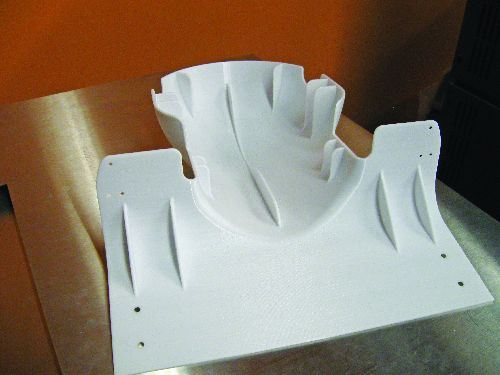
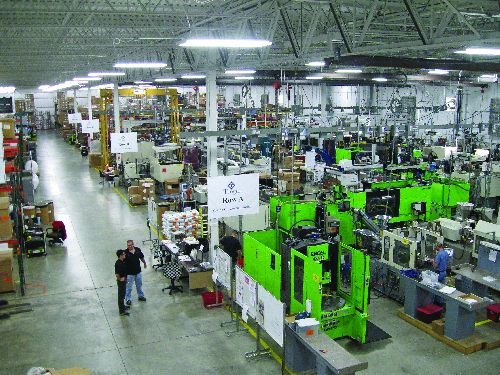
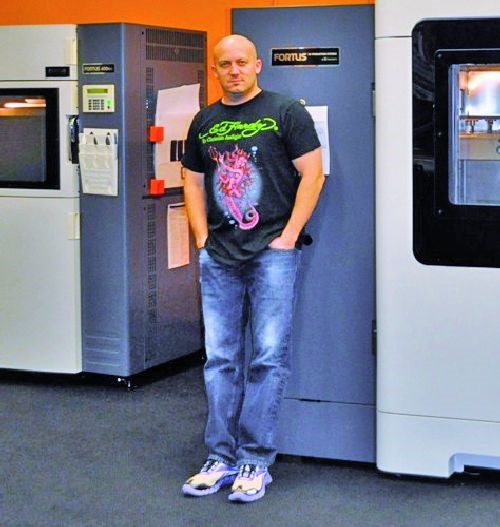
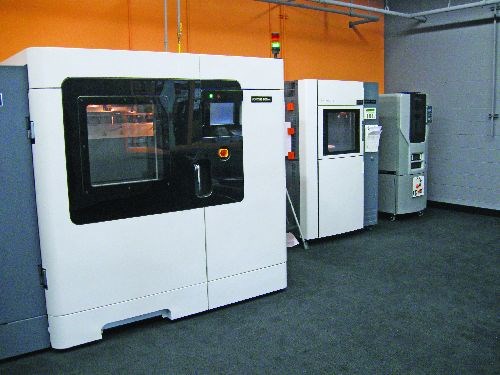
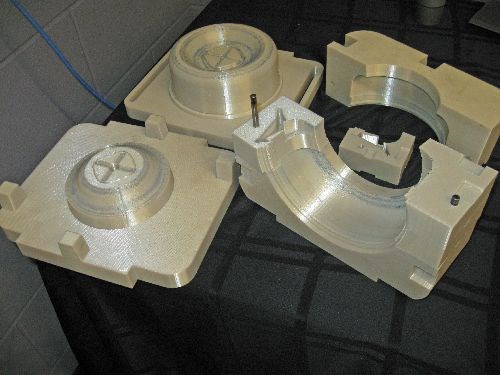
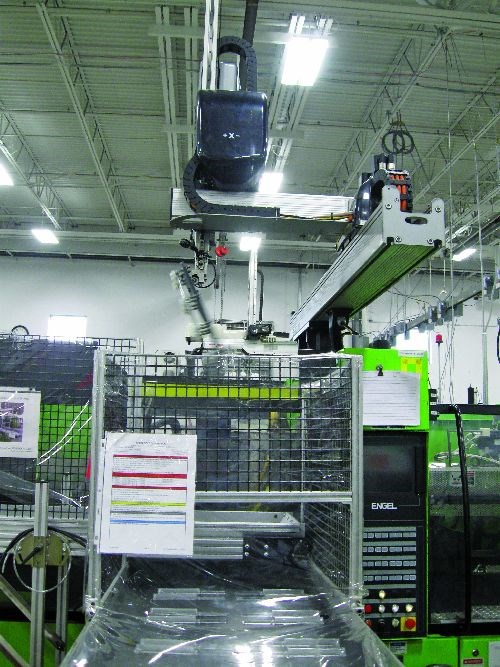
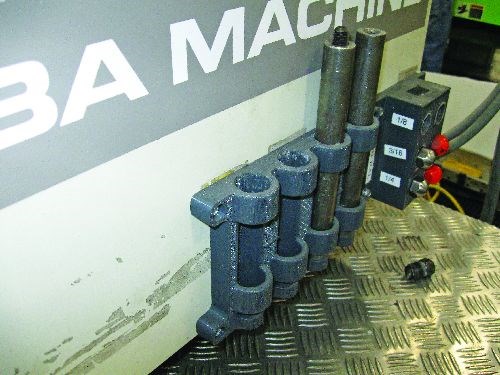














.png;maxWidth=300;quality=90)









.jpg;maxWidth=300;quality=90)

